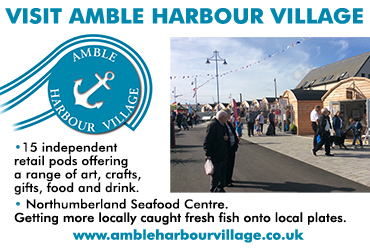Fish fight continues
 An end to the requirement to throw dead non- quota fish back into the sea, as highlighted by celebrity chef Hugh Fearnley-Whittingstall’ s Fish Fight campaign has been welcomed, although local fishermen and a wildlife trust have added cautions to the news.
An end to the requirement to throw dead non- quota fish back into the sea, as highlighted by celebrity chef Hugh Fearnley-Whittingstall’ s Fish Fight campaign has been welcomed, although local fishermen and a wildlife trust have added cautions to the news.
The European Commission has presented its proposal for a major reform of the EU Common Fisheries Policy. The biggest wildlife charity in the region say they agree with UK Fisheries Minister, Richard Benyon’s response that the current policy has failed.
Steve Lowe, Head of Conservation with Northumberland Wildlife Trust said, “Northumberland Wildlife Trust agrees with the Minister that the current Common Fisheries Policy has failed to manage European fish stocks in a sustainable way. It has not given us healthy fish stocks. It has resulted in more fishermen chasing fewer fish. Only fundamental reform of this broken policy and its integration with wider conservation measures can turn around these failures. We must begin the process of returning UK and EU seas to their former health and productivity.”
He continued, “While, of course, we welcome the end of the unacceptable practice of throwing dead fish back to the sea, it is important to remember that discards are also important populations of fish. They should not, therefore, be considered or treated as just a by-product of fisheries. Some non-quota fish, such as gurnard, can still be discarded under this proposal despite being perfectly edible.”
Michael Bould, a local fisherman, told The Ambler, “Discards are created by disparities in the quota system, not by fishermen over-fishing. You can’t fish to order what is in the quota.”
An example would be that if you you’ve reached your quota of plaice and more are caught along with your prawns they have to be discarded.
Michael said “There are over a thousand fewer fishing vessels in UK than a decade ago and those of us who are still fishing say that there are more fish to be caught, but no quota allowing them to be landed. These include haddock, whiting and cod, which are more prolific now than in the last twenty years. Defra needs to get the science sorted out.”












